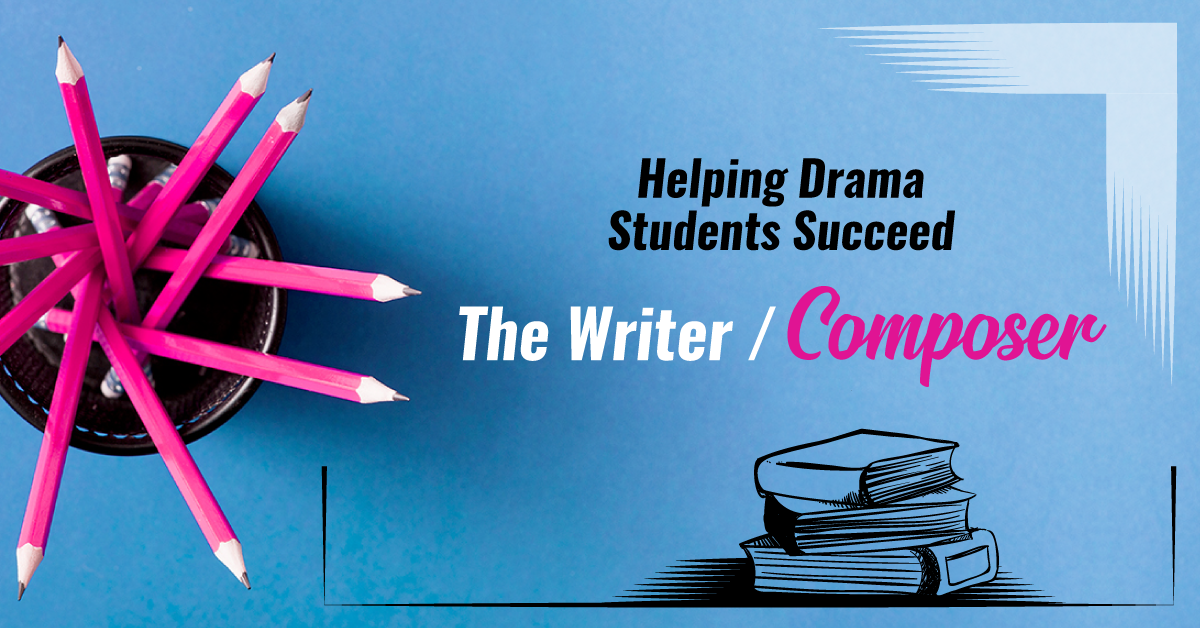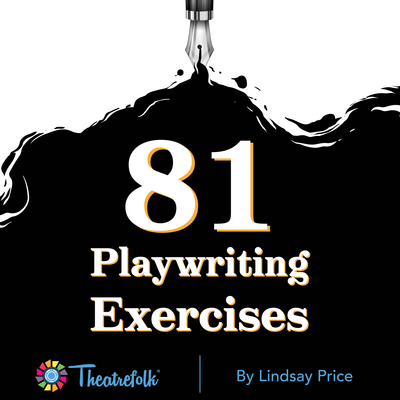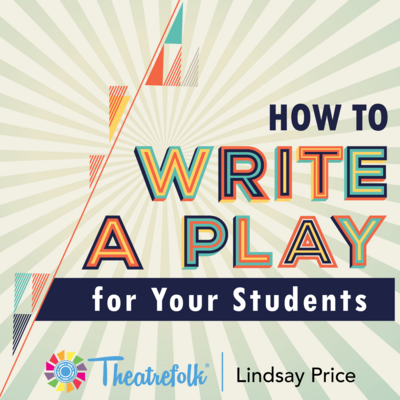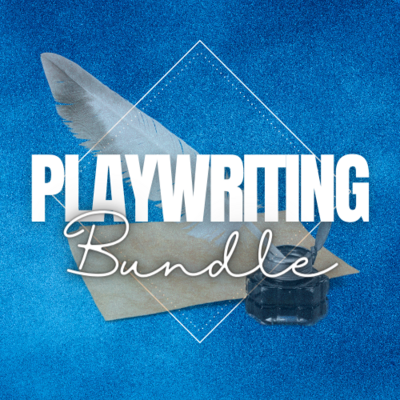Helping Drama Students Succeed Part 2: The Writer/Composer
This month we’re focusing on helping different types of students in your drama class succeed. In Part 2 of this series, we’re focusing on the writer/composers. Going back to the High School Musical comparison, these are your quietly brilliant Kelsi Nielsens. Like your drama enthusiasts, these students love drama class and are usually involved in school productions, as well as up to date on all the Broadway news. They might be musically inclined and play at least one instrument. They’re often well spoken and quite witty once you get to know them, and they do well in other classes such as creative writing, English, and music. They may or may not be eager performers in class, but they participate and contribute effectively.
These lovely students are creative, smart, and talented, but sometimes they can be introverted and quiet. This can lead to them being overshadowed or spoken over by their more extroverted classmates. Their creative ideas and writing skills are definitely assets, but they can be relegated to the workhorse role in group work and they don’t always get the credit they deserve for their contributions. They also may feel like they don’t fit in with their peers in drama class; as writers and composers, they don’t easily fall into the performer or crew categories.
Your writer/composers may need reassurance that their contributions are valuable and, indeed, necessary for your drama class. They are the ones who will come up with material that is relevant, fresh, and interesting to your drama students. Who knows, your students might be the creators of the next big hit someday!
Encourage your writer/composers to write/compose daily, and to share their work as much as possible to grow and get feedback. Challenge them to take the lead on group playwriting activities. There are many articles and exercises here at Theatrefolk about playwriting that you can use to inspire your students. At the same time, participating in a variety of onstage and technical production roles will benefit your writer/composers and allow them to gain practical theatrical experiences that will inform their future written creations.
If possible, look into creating special focus projects and opportunities for your writer/composers, such as:
- Workshopping scenes they’ve written by having their classmates read or perform them in class
- Editing or acting as dramaturgs for other students’ written work
- Writing the script or composing music for a class performance project
- Composing a new school song
- Challenging them to try different styles of writing, such as sketch comedy or spoken word poetry
- Creating original underscores to accompany mime, tableau, mask, or otherwise silent scene work
- Composing pre-show, scene change, intermission, or post-show music for your school production
- Creating a series of improv scene or playwriting prompts for you to use in your classroom
Try this playwriting exercise to get your writer/composers’ brains going quickly and creatively (as well as the brains of the rest of your class!). Students will complete this exercise in groups of 2-4.
3 Items Playwriting Exercise
Select three items visible in the drama classroom. For example:
- A hoodie, a pencil sharpener, and a chair
- A backpack, a poster, and a piece of chalk
- A day planner, a granola bar, and a dustpan
Students have 10-15 minutes to write a one-page scene that has the same number of characters as group members and uses, mentions, or involves the three items in some way. The rest of the scene elements (characters, location, topic, style) are up to the group. The scene must have a beginning, a middle, and an end.
When time is up, each group will read the scene out loud for the rest of the class, with each group member reading one of the roles.
If time permits, have a class discussion about the various creative ways the same three items were used differently in each scene.
Alternate option: Students may compose a short song or rap, set to the tune of an existing song or an original melody, using the three items. As with the scene, students will perform the song or rap out loud for the rest of the class.
Related Articles
81 Playwriting Exercises
by Lindsay Price
81 exercises that can be used to get students in the habit of writing on a regular basis.
How to Write a Play for your Students
by Lindsay Price
You’ve chosen to write a play for your students! Where do you start?
Resource Bundle - Playwriting
Use these 4 Playwriting drama teaching resources to make playwriting possible with your students. Great for warm-ups, prompts, writer's block and more!






